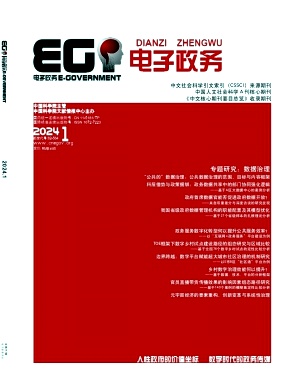Developing an Internationalisation Process through Digital Transformation: An Evidence in British MSMEs
引用次数: 1
Abstract
This paper gathered British MSMEs data if they are using the appropriate internationalisation theories and DTs as an independent variable for internationalising. This paper also includes criticism concerning internationalisation theories, DTs usage, and how the deployment of DTs might assist these theories as moderators and their relevance to addressing the MSMEs issue amid the COVID-19 epidemic. The dynamic capability is recognised to help MSMEs operate more effectively because it allows them to specialise more goods and readily adjust to changing company demands, and it can help MSMEs internationalise 77 times more than those that do not use this mechanism. Website and electronic sharing use, also known as DTs adoption, may impact MSMEs to internationalise 1750 and 49 times, respectively, since they enable MSMEs to reach a larger region, establish new sales channels, and simplify knowledge transfer to develop for new products. The existence of DTs as internationalisation theories moderators, on the other hand, produces distinct effects. Resource internalisation can benefit MSMEs’ export if paired with a website, online selling, and electronic sharing, albeit only online selling, has a significant influence. However, the dynamic capability, which is proven, can assist MSMEs export individually, but it is less effective in supporting export when combined with DTs since only online selling fits it to support export. In contrast to its partnership with resource internalisation, moderation has little influence on exports.通过数字化转型发展国际化进程:以英国中小微企业为例
本文收集了英国中小微企业的数据,如果他们使用适当的国际化理论和dt作为国际化的自变量。本文还包括对国际化理论、DTs使用的批评,以及DTs的部署如何帮助这些理论作为调节因素,以及它们与解决2019冠状病毒病流行期间中小微企业问题的相关性。动态能力被认为可以帮助中小微企业更有效地运作,因为它允许他们专门生产更多的商品,并随时适应不断变化的公司需求,它可以帮助中小微企业国际化,比那些没有使用这种机制的中小微企业多77倍。网站和电子共享的使用,也被称为DTs的采用,可能分别对中小微企业的国际化产生1750倍和49倍的影响,因为它们使中小微企业能够到达更大的区域,建立新的销售渠道,并简化知识转移以开发新产品。另一方面,作为国际化理论调节者的技术专家的存在产生了明显的效果。如果与网站、在线销售和电子共享相结合,资源内部化可以有利于中小微企业的出口,尽管只有在线销售具有显著影响。然而,事实证明,动态能力可以帮助中小微企业单独出口,但当与直销相结合时,它的支持效果较差,因为只有在线销售才适合支持出口。与其与资源内部化的伙伴关系相比,适度对出口的影响微乎其微。
本文章由计算机程序翻译,如有差异,请以英文原文为准。
求助全文
约1分钟内获得全文
求助全文

 求助内容:
求助内容: 应助结果提醒方式:
应助结果提醒方式:


